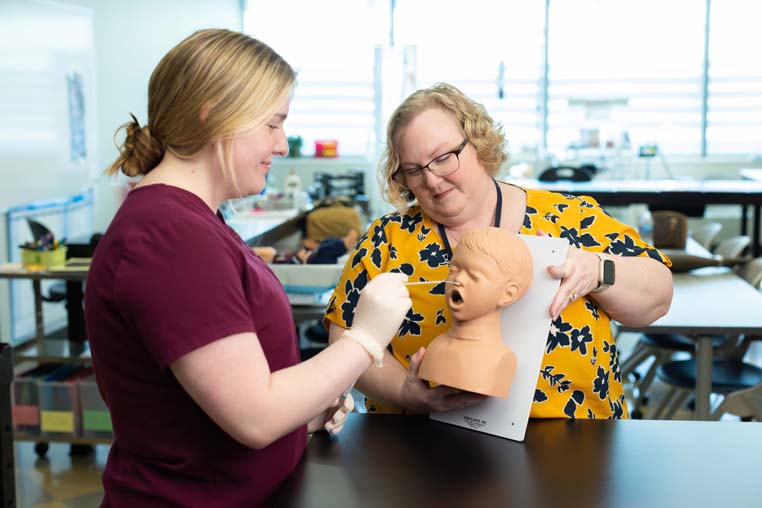Work alongside physicians as a multi-skilled healthcare professional.
What is Medical Assisting?
As a medical assistant, you will be a healthcare professional that works alongside doctors in clinics and medical offices. You will be responsible for providing a smooth work flow for your doctor by getting patient vitals, history and assisting with exams. This job is challenging, rewarding and can lead to many great opportunities.
A Medical Assistant is an integral member of the health care delivery team, qualified by education and experience to work in the administrative office, the examining room and the physician’s laboratory. Individuals in this unique position will be involved in many of the following skills: General health care professional practices, Administrative duties, Clinical preparation for patient examinations, procedures and treatment, record medical histories, take vital signs, chart patient information, administer medications and injections, provide patient instruction and education, perform venipunctures, collect and prepare other specimens, perform electrocardiograms (ECG), sterilize instruments, and perform basic laboratory tests.

Getting Started
What are my degree, diploma, and certificate options?
While earning your AAS, you also earn the diploma and certificates listed.
How Do I Pay For This?
Worry no more. With the lowest tuition in Kentucky, financial aid options, and a helping hand to guide you through the application process, we have you covered. We'll help you reach your goals at a price that won't break the bank.
What Else Do I Need to Know?
Accreditation
The Medical Assisting program is accredited by the Commission on Accreditation of Allied Health Education Programs (www.caahep.org) upon the recommendation of the Medical Assisting Education Review Board (MAERB).
Commission on Accreditation of Allied Health Education Programs (CAAHEP)
9355 - 113th St. N. #7709
Seminole, FL 33775
727-210-2350
Length of Program
You can earn an associate in applied science degree in two years if you maintain full-time status.
This information should not be considered a substitute for the KCTCS Catalog. You should always choose classes with your faculty advisor to ensure you meet all degree requirements.
CMA Exam Pass Rates for OCTC Students
The OCTC Medical Assisting program prepares students to sit for the CMA exam through the American Association of Medical Assistants. The five-year average for the exam passage rate for the years 2020-2024 is 74.19%.
The annual program pass rates are:
| Year | Exam Passage |
|---|---|
| 2024 | 60% |
| 2023 | 100% |
| 2022 | 80% |
| 2021 | 83.33% |
| 2020 | 66.67% |
| Five-Year Average | 74.19% |
Ready to Find Your Path?
Not sure which career is right for you? Career Coach is your personal guide to discovering exciting career possibilities that match who you are and what you love to do!

